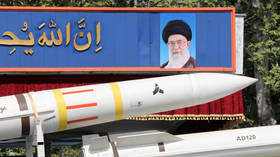"Russia Close-Up": Kuban’s fields of gold
Endless hectares of golden-coloured fields lie across the Krasnodar region, known locally as Kuban, or more figuratively as “Russia's breadbasket”. Rye, wheat, corn, cherries, apples, honey, plums… You name it – it grows there.
Russians have a saying, used to describe how rich a land is. It goes “plant a stick into the soil and watch it grow into a tree”. Those words describe the Krasnodar region. Experts say its soil and mild climate make it practically an ideal place for agriculture.
Hot summers, with average temperatures of 30 degrees centigrade, and winters with lows of minus10 are typical for the region. Though sometimes the weather springs nasty surprises
“It was a very cold winter in 2006, the temperature reached minus 40 degrees Celsius and many plants were damaged. They are recovering now,” says Sergey Dubravin, an agriculture specialist.
But some people have already found a way to deal with unpredictable weather, like a farm which uses top-notch technology – a modern irrigation system in the summer time and greenhouses during the winter. Its owners hope it will bring a rich reward.
“What we have managed to achieve is almost full automation of the farming process and higher quality production. And we get 100% financial returns in the fourth year. In most farms this only happens after the 7th or 8th year,” claims farmer Aleksandr Klat.
High season brings profits not only to the bosses, but to employees as well. Alexander Hanja is a senior combine harvester operator. All through the harvest season he's covered with soot, working 12-hour shifts. His job is hard, but brings dividends – he has the highest salary in his village.
“Every harvest is a small festival. We have a reasonable income. Good crops mean a good life,” Aleksandr says.
However, it hasn’t always been this way. During the 1990s, due to a lack of financing and demand, many farms were depleted, and the raising of new stock practically ended. Many businesses were abandoned. But now they're rising from the ashes.
One of the farms has been restored from what was almost a ruin just a year ago.
Now the farm, operated by several hundred men, is one of the biggest in the region.
Its owner Alexander Gudkov says the time has come for Kuban's agricultural resurrection.
“We get credit with minimal interest rates and local authorities support us and provide us with land to build farms, and to store up animal fodder. So we have all the opportunities at our fingertips,” he explains.
Farmers agree – getting back on a firmer footing will not be easy and it could take up to a decade. Bringing the live-stock to the necessary level alone will take a minimum of three years. But local dairymen are determined to make it happen.
This story is the first of a new monthly series on RT called “Russia close-up”. The aim of the project is to look in detail at the special life and character of Russia's many regions. In June, there'll be three day's of reports from the Krasnodar region in the south of the country. We’ll tell you about agriculture and tourism there, as well as reporting on the region's famous resort city, Sochi, and its bid to host the Winter Olympics in 2014. So, make a date with “Russia close-up” – live on Russia Today.












